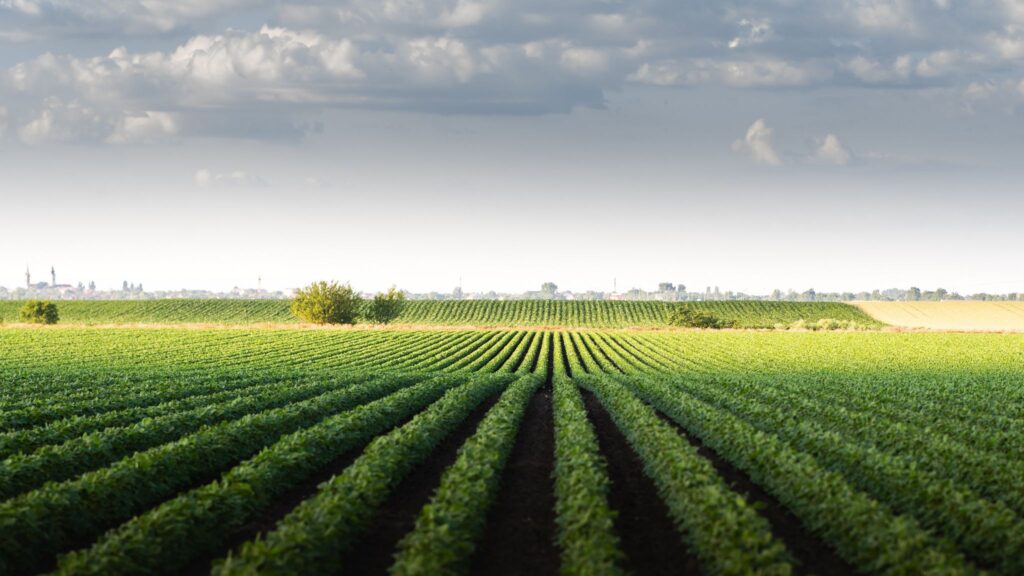Last year was the hottest in human history. February of this year continues the trend and was the ninth month in a row that has seen the warmest temperatures on record. Climate change is a global crisis that demands urgent action from the international community. Rising temperatures disrupt agricultural cycles, cause sea-level rise, and intensify extreme weather events like droughts, wildfires, and floods. These changes threaten infrastructure, livelihoods, and ecosystems. Climate change is also a global health emergency, with extreme heat and weather events leading to deaths and displacement, vector-borne diseases spreading, and rising concern about effects on mental health.

The latest IPCC report paints a stark picture: significant emissions reductions are necessary to limit global warming to 1.5 degrees Celsius. They are increasing instead, and projected emissions to 2030 are double what they should be.
Global problems require collective action
Complex, global problems—like those posed by climate change—necessitate a collective and urgent response. Action at the international level is critical because of the transboundary nature of climate change and food systems challenges. Greenhouse gas emissions don’t respect borders. Shared responsibility is essential since no single nation can address these challenges by working alone. Collective action also helps to ensure a more level playing field for all and avoid free riders who don’t do enough yet benefit from the work of others.
In this context, how are current efforts at the international level measuring up, and where do food systems fit into the broader climate action narrative?
The United Nations Framework Convention on Climate Change (UNFCCC) is the primary international treaty addressing climate change. Established in 1992, it provides a framework and a process to bring countries together to negotiate agreements aimed at climate change mitigation and adaptation. These negotiations—the Conference of the Parties (COP)—are an annual reminder of the progress made and the challenges we still face in tackling this existential threat.
As the primary global forum for addressing climate change, COP priorities and outcomes significantly affect all sectors. Food systems rely on global supply chains and shared resources; they contribute a sizable portion of global greenhouse gas emissions. They are critical to this global climate policy context. But they have often been overlooked despite the recognition that agriculture has received in international climate negotiations for some time.
It’s time we give this issue the recognition it deserves.
Food systems are part of the problem
Our food systems – all the activities that bring food from farm to fork and beyond – contribute up to one-third of global greenhouse gas emissions. Agricultural production accounts for up to 85% of food sector emissions and 15–25% of global greenhouse gas emissions, directly through agricultural practices (livestock, fisheries, and crop production) and indirectly through land conversion for livestock production. Some greenhouse gases that are particularly prevalent in food production, like methane and NO2, are concerning due to their intense effect on climate.
The recent UN Food Systems Summit Stocktaking Moment highlighted the need for sustainable food systems to address inequalities, rising levels of hunger and malnutrition, biodiversity loss, pollution, and carbon emissions. It concluded with a call to action for accelerated food systems transformation to address the challenges countries face, including climate change.
And while food systems affect the climate, the changing climate adversely affects our food systems in return. Rising temperatures, irregular rainfall, and extreme weather are making harvests unreliable and leading to crop failures in some cases. Entire regions may become unsuitable for staple crops where they become hotter or flooded due to rising sea levels. Crop failure can mean hunger in communities already struggling with access to food. For major exporters, crop failure can cause economic instability, and decreased supply drives high prices for importers.
Food systems are at the centre of the solution
The good news is that food systems can be part of the solution to climate change (and, of course, positive effects on climate change benefit food systems, reinforcing the change). This includes farming practices that rebuild soil health, capture emissions, and make farms more resilient to extreme weather events.
Reducing food waste across the supply chain, especially on farms, where most waste occurs, also lowers emissions from production and landfills. The UN has estimated that if food loss and waste were a country, it would be the third largest emitter in the world. Where circular systems are adopted, waste doesn’t leave the farm but instead is cycled back into production, for example, as energy and fertilizer.
Shifting diets towards less resource-intensive foods, minimizing food miles, adopting more sustainable packaging practices, and protecting our oceans through sustainable fishing are also important aspects of transforming the whole food system to address climate change.
Why food systems get overlooked in climate action
While food systems are a necessary part of the solution to climate change, policies have traditionally focused on energy production and specific industrial processes identified as primary sources of greenhouse gas emissions, such as transport, manufacturing, and construction. Meanwhile, the impact of our diets has been largely overlooked. Why?
Firstly, food systems span multiple sectors – from agriculture and transport to packaging and waste. The complexity and variability of these systems, which differ significantly by region and cultural context, present challenges for creating and implementing unified, effective policies.
Second, the importance of agriculture as the backbone of many economies, especially in developing countries, also presents challenges. The delicate balance between environmental sustainability and economic viability has often led to resistance against climate policies within the agricultural sector. Asking farmers to change practices can feel threatening to their livelihoods, particularly in a context where a just rural transition to support a more resilient and equitable agricultural sector is often lacking.
Third, focusing on the demand side, for example, through policies that shape diets towards eating less meat, is politically risky and often fraught by a lack of clarity on its aims and objectives. Interventions focused on dietary change often get framed as attacks on individual freedoms and economic growth. Yet there is increasing evidence that citizens support action on food system challenges, including their impacts on climate change.
COP28: A step forward
The narrative, however, is gradually shifting. COP28, held in Dubai in December 2023, highlighted the growing recognition of the role food systems play in the climate crisis through several initiatives:
- The unprecedented endorsement of a declaration on sustainable agriculture, food systems, and climate action by a record number of countries at COP28 signalled a growing global consensus on the need to prioritize food systems in climate efforts. The declaration recognizes the urgent need to transform food systems to be more resilient, sustainable, and equitable in the face of climate change. It calls for increased investment in research and innovation, support for smallholder farmers, and scaling up nature-based solutions. By putting food systems at the heart of COP, this declaration can potentially drive more ambitious and coordinated action from countries worldwide.
- A food systems roadmap launched by the UN’s Food and Agriculture Organization sets out the path to aligning food production with climate goals across 10 domains, covering sustainable agriculture, healthy diets, and food loss and waste. Critically, it emphasizes the need to reduce emissions from livestock by 25% and halve food waste by 2030.
- Significant financial commitments for climate-food innovation, totalling USD 2.6 billion, demonstrate growing recognition of the importance of investing in sustainable food systems as a climate solution. These funds will support the development and deployment of new technologies and practices that can help reduce emissions from food production, increase resilience to climate impacts, and improve food security, helping to accelerate the transition to a more sustainable and climate-friendly food system.
But it’s not enough
Yet despite these positive developments, COP28 fell short of expectations. The final agreement acknowledged sustainable agriculture as part of the solution to climate change, but didn’t mention the relevance of emissions from agriculture or the importance of addressing the problem from a food systems perspective, as foreshadowed in the declaration at the beginning of COP. Furthermore, the declaration has no formal, binding targets linked specifically to food system changes. These were significant missed opportunities for making substantive progress.
What can we do?
A food systems approach to addressing climate change calls for multiple, collective efforts from a diverse range of participants. It requires small and large-scale changes that redefine our relationship with food for the betterment of people, animals, and the planet.
The momentum for change requires action at all levels. We need:
- Enhanced Global Cooperation: Future COP meetings must prioritize food systems, fostering international collaboration and shared, binding commitments towards sustainable agriculture, reduced food waste, and climate-resilient food supply chains.
- National Strategies and Policies: Countries should develop and implement comprehensive food system strategies that not only align agricultural policies with climate goals, including providing incentives for sustainable farming practices, but also encourage sustainable consumption through healthy diets, food waste reduction targets, and public procurement of sustainable food.
- Cross-Sector Collaboration: Addressing food systems within the climate context demands collaboration across sectors—engaging governments, businesses, civil society, and consumers in a concerted effort to drive change. Multi-stakeholder platforms, such as the UN Food Systems Summit, can facilitate dialogue and partnerships. Industry initiatives can drive private sector action on sustainable agriculture and supply chains. Citizen engagement through community-led initiatives can help drive grassroots change.
Our food choices are climate choices: we stand at a critical juncture in the fight against climate change, and food systems must be at the forefront of our response. By working together across sectors and borders to transform how we produce and consume food, we can build a more resilient, equitable, and sustainable future. The time to act is now—our planet and future generations depend on it.
Come and join the conversation on LinkedIn.
I write about the future of food and the connections between our food systems, the environment and public health. Sign up for my newsletter.
You can also read more here.






